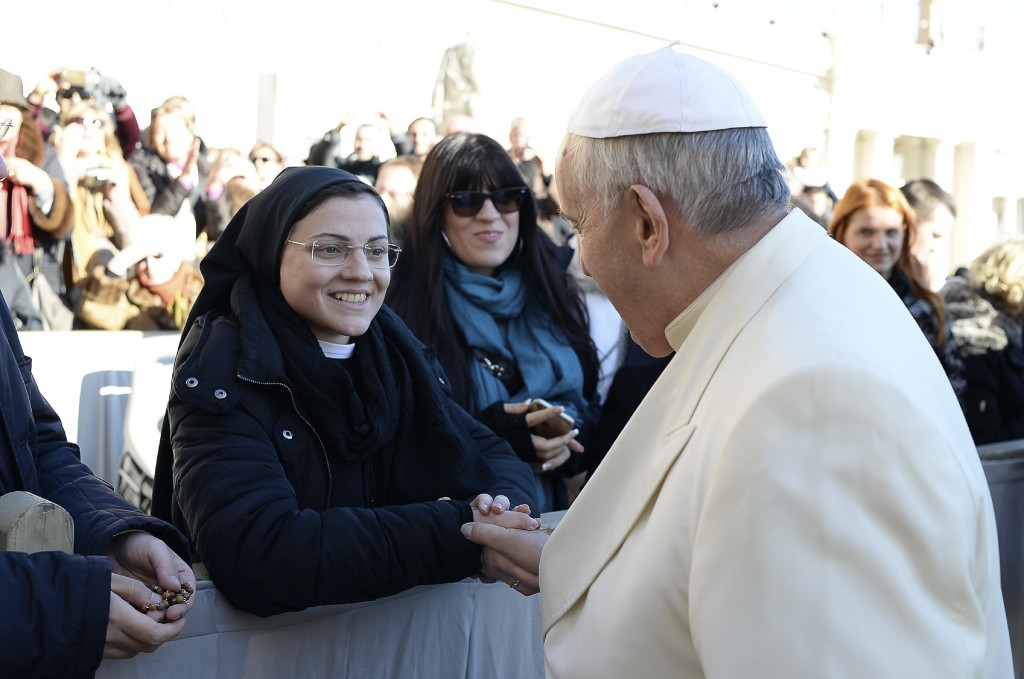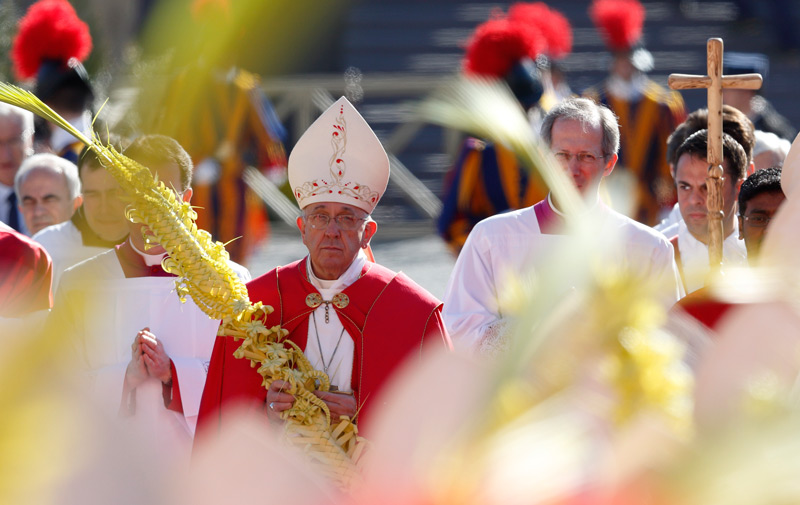
Editor’s note: This is the fourth and final column in a series on Pope Francis’ post-synodal apostolic exhortation, Amoris Laetitia (The Joy of Love).
The Francis Effect is what writers like John Gehring have termed the influence of the pope on politics and Catholic life. He notes what we all know: that the policies supported by both major political parties in our country don’t always line up with our Catholic moral understanding. Thus we have to call ourselves to higher standards and to keep working to influence those around us.
In Amoris Laetitia (The Joy of Love), Pope Francis transcends liberal-conservative agendas and offers some spiritual insights as to how Catholics can foster what is right and good without compromise. He never tells us how to vote, but he is very clear about what we need to stand for. Francis reminds us that “the family is the sanctuary of life” and that, by the sacrament of matrimony, parents become “ministers of their children’s education.” In short, we are called to be pro-life, pro-family, and pro-moral education.
Francis notes that “the larger family,” our relatives and our neighborhoods, must “provide love and support” to those in need. He cites mothers raising children alone, isolated singles, the separated, the widowed, persons with disabilities, those suffering from addictions, the elderly, and the infirm who lack caregivers.
The pope acknowledges that all sorts of lifestyles have become trendy and socially acceptable. So he reminds us that followers of Christ are called to pour out healing balm and a cornucopia of mercy. It’s a lonely, hurting world. Francis constantly reminds us that God’s unconditional love is powerful beyond words. Such love invites people to be the best and do the best — to be real, Godly brothers and sisters to one another. But it also treats them with respect when they decline that invitation.
Pope Francis talks about a spirituality of marriage and family, which is really a spirituality for society.
Living in our civic communities, parishes, and families puts us in “supernatural communion.” If we truly believe in the Holy Trinity, we believe that God is with us and is, by nature, relational. So we are designed for loving relationships. Love calls us to prayer — with and for others.
The pope talks about healthy limits to love. He calls love “exclusive and free,” meaning that we owe steadfast devotion to those among whom we live and those to whom we have committed our lives.
As we all know, living with others requires give and take and sometimes heavy-duty giving in. A loving household is characterized by “care, consolation, and incentive,” he says. The Holy Father sees that human beings are programmed for compassion and hospitality. Everyone needs a place to call home and a place to rest. We wither if we are rootless, lacking refuge and kinship.
A legislative movement, which hoped to cure schools, was “no child left behind.” Pope Francis reminds us that our obligation as human family is to keep supporting policies and services that assure that no person, no one at all, is left behind. We call that the Jesus Effect.




